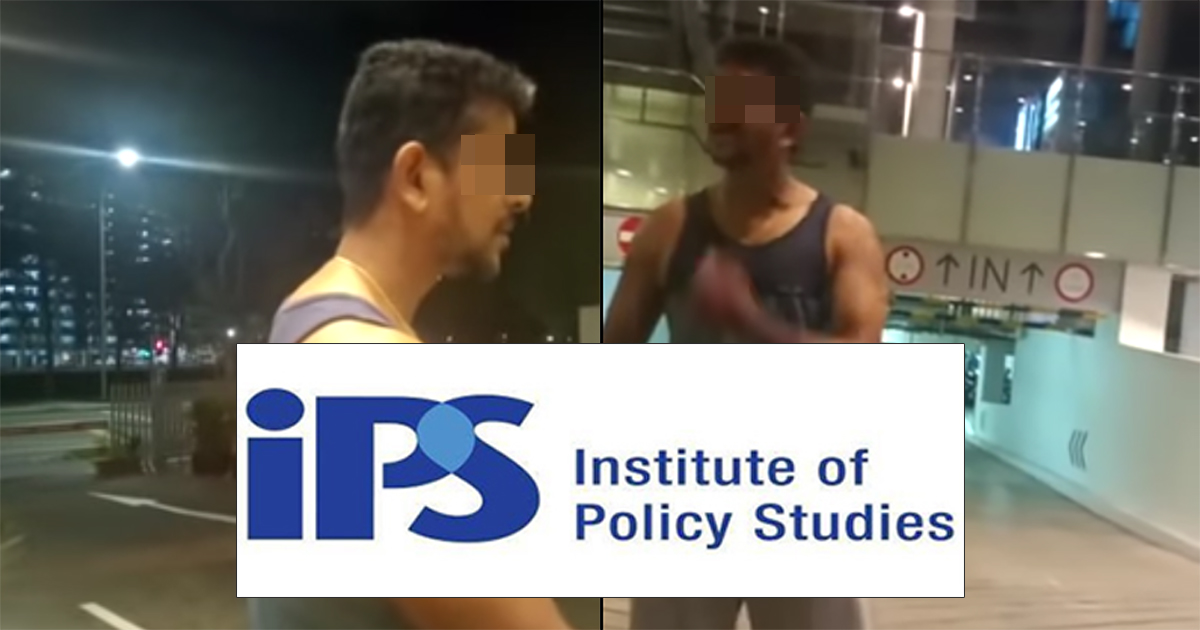The recent incident of an employee from JP Morgan berating a condominium security guard in Singapore shows that there are some expectations by Singaporeans for greater government intervention in issues of immigration and class.
Additionally, the incident is also emblematic of how matters of class and immigration can intersect.
These were the findings published in a working paper by the Institute of Policy Studies (IPS) on Oct. 29.
How IPS unpacked the Whampoa condo incident
In its unpacking of the incident and how it represented Singaporeans' expectations, the study noted that much of the fallout on social media highlighted the classist comments made by 44-year-old Ramesh Erramalli.
What's more, the online reaction to the incident was largely centred on a few sentiments:
- Calling for punitive action to be taken against Ramesh such as:
- arresting him,
- investigating his educational credentials,
- dismissing him from his job, or
- deporting him, and
- Highlighting a foreign-local class divide by bringing up the man's foreign origins and his treatment of the local security guard, and
- Highlighting Ramesh's ethnic and foreign origins as the main reason for his outburst.
IPS further noted that heavy references were also made by online commenters to the Comprehensive Economic Cooperation Agreement (CECA) as an "adverse state-of-affairs", while there were also calls by security associations, unions and politicians to better protect lower-wage workers.
This led to the study making the following conclusion:
"The above incident provides a clear vignette of how immigration and class issues (and race to some extent) can intersect, as well as some expectations of government involvement to mitigate immigration and class issues."
Younger, higher-educated Singaporeans want greater intervention on immigration
In terms of demographics, the study further highlighted that the desire for state intervention on immigration issues was highest for respondents who held at least a degree (Table 39), and were aged 26-45 (Table 40).
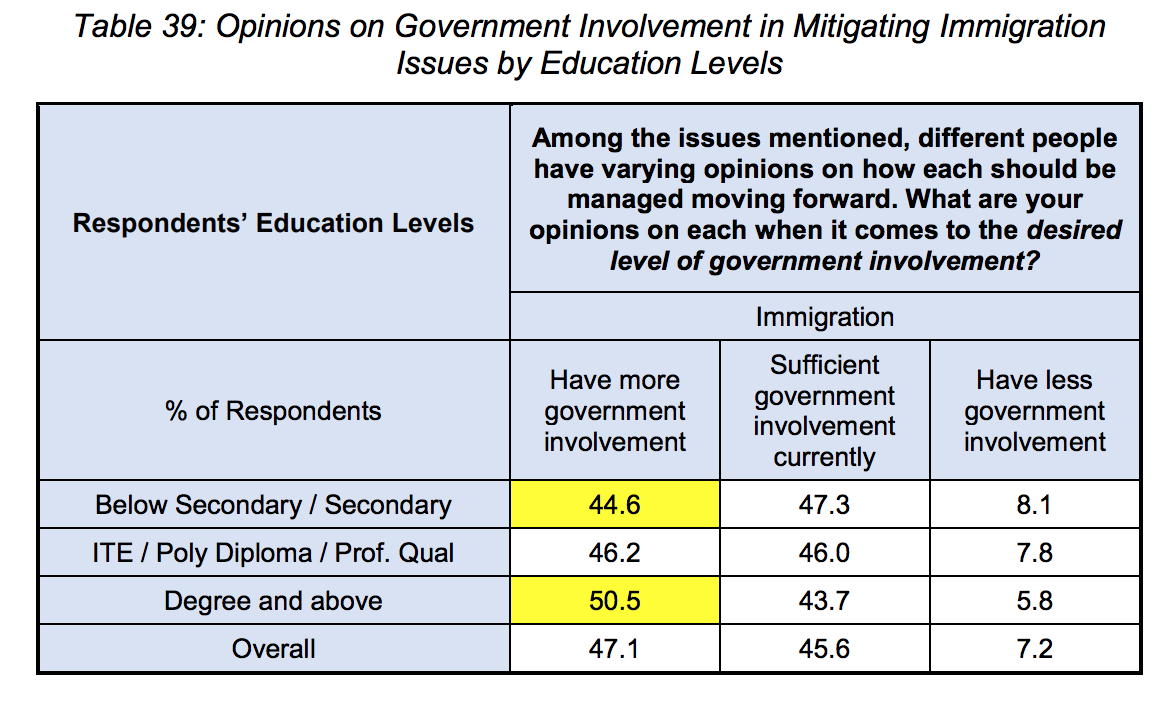 Screenshot from IPS
Screenshot from IPS
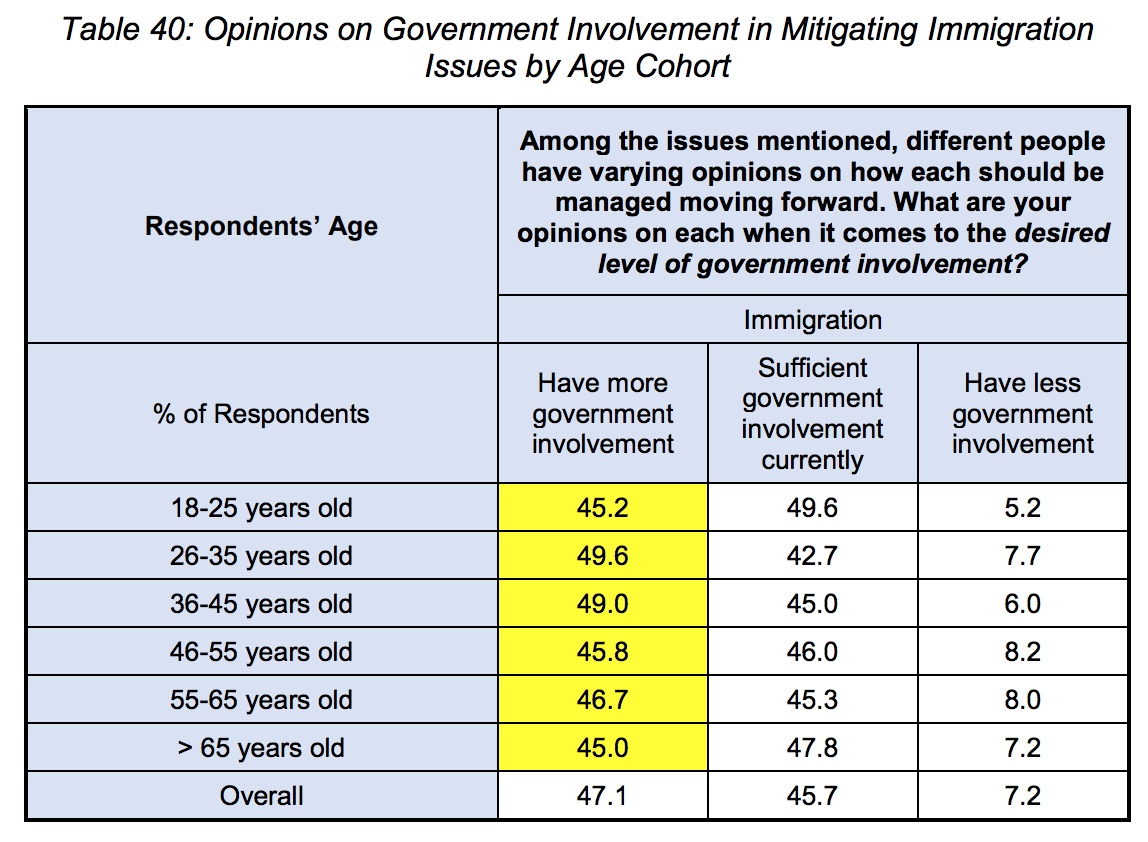 Screenshot from IPS
Screenshot from IPS
Here, the study posited that two potential reasons for such figures:
- Higher levels of xenophobia and insecurity on the topic of job security amongst Singaporeans, and
- Higher-educated Singaporeans being more likely to find themselves in increased competition with foreigners working in similar industries and professions in the labour market (e.g. Employment Pass holders)
In comparison, the study highlighted that this is less of an issue for Singaporeans of lower education, given that they are more likely to work in industries with less foreign labour, as semi-skilled migrant workers here are largely employed in the construction and manufacturing industries.
Young Singaporeans also want more state intervention on class
The study further noted that half of the respondents, aged 18-25, were also keen for the government to be more involved in issues of socio-economic class (Table 36).
In comparison, just over half of those aged 46 and above felt that there was already sufficient state intervention on such matters (Table 36).
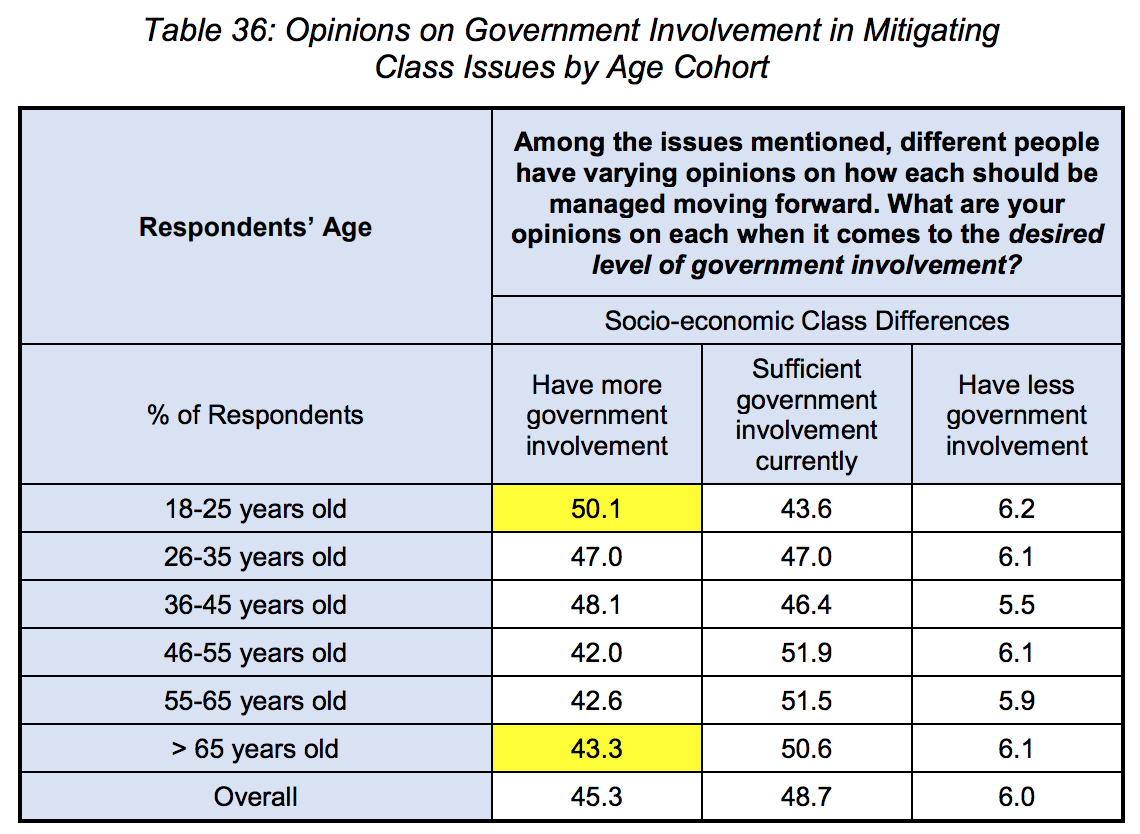 Screenshot from IPS
Screenshot from IPS
The study added that such a difference could likely be due to the younger generations facing increased competition in the job market and industry, resulting in issues of inequality taking on increased significance.
Additionally, it could also be due to the younger generation perceiving class and immigration as heavily tied to the state's socio-economic policies.
Education appears to increase awareness of class and immigration
Similarly, the study further noted that respondents who had higher education were also more likely to express greater state involvement on class issues, compared to their less educated counterparts.
In particular, 52.5 per cent of respondents who held at least a degree expressed such a desire, while only 39.7 per cent of respondents with secondary education and below expressed the same.
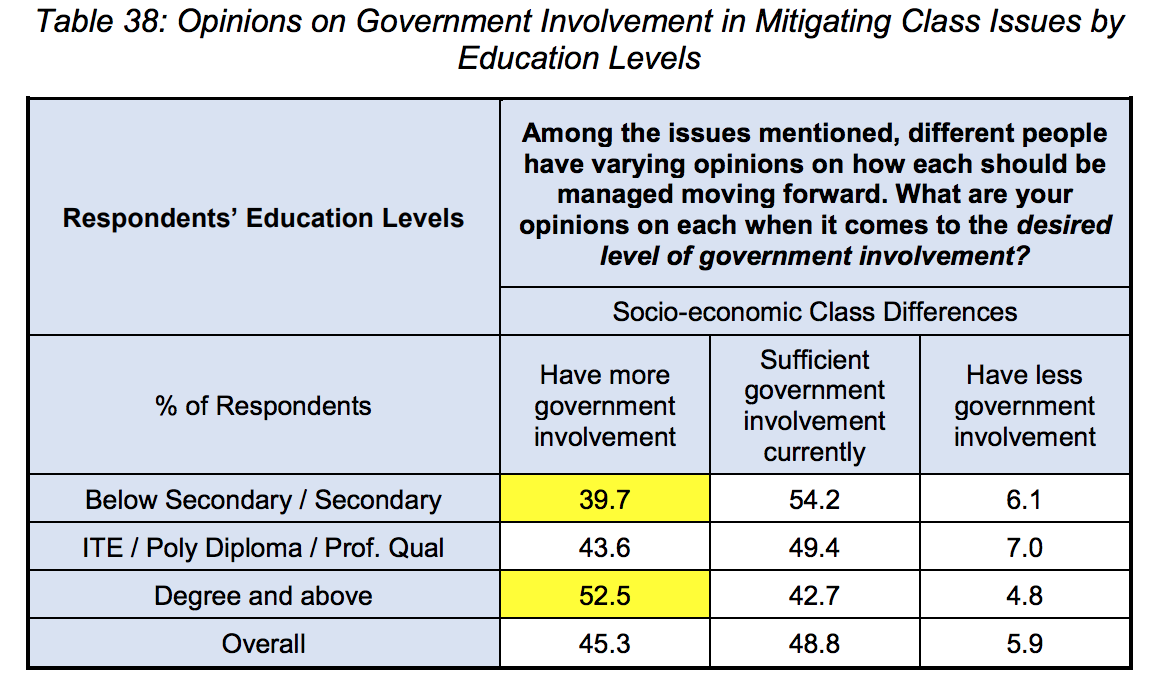 Screenshot from IPS
Screenshot from IPS
On these figures, the study added:
"...these findings seem to suggest that the effect of education on augmenting awareness of class differences is perhaps greater than the effect of lived experiences of lower-educated respondents on their desire for more state involvement."
It also posited that less educated respondents may not be as aware of recent discussions on widening class divides -- a faultline that could be consequential if not handled well.
More on the survey:
More on the incident:
Top image collage from IPS Facebook, original video and Google Maps
If you like what you read, follow us on Facebook, Instagram, Twitter and Telegram to get the latest updates.
